Hugo Chavez Dies: A Look At The World's Newspapers
With Hugo Chavez's illness advancing for two years, every major news outlet in the world had the time to get an obituary ready for the president of Venezuela. There was no doubt that his eventual demise would be big news. Chavez was a colorful character; an ex-coup leader turned politician, intent on furthering a "Bolivarian revolution" with strong socialist connotations, palling around with international pariahs such as Iran's Mahmoud Ahmadinejad; and the president of a country that produces 2.5 million barrels of oil per day, three percent of the world's total.
Within minutes of the news of his death on Tuesday afternoon, Caracas time, the world's biggest newspapers all had the story on the home page. Speculation had been rife for days about el jefe's true fate, with some insinuating that he had been dead for days and a secretive government was hiding the information from the world.
In Venezuela, newspapers splashed the story on their home pages.
"President Chavez is dead," El Universal, a Caracas business-oriented newspaper often critical of the leftist president, said simply.
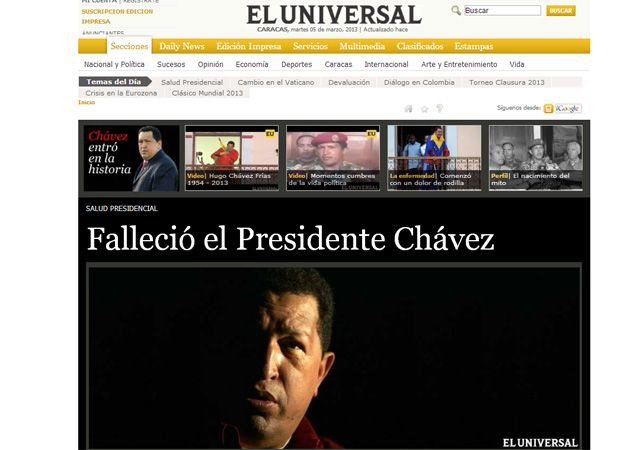
El Nacional, an authoritative, progressive daily, chose to highlight the president's Christian religiosity with a photo that showed him kissing a cross.
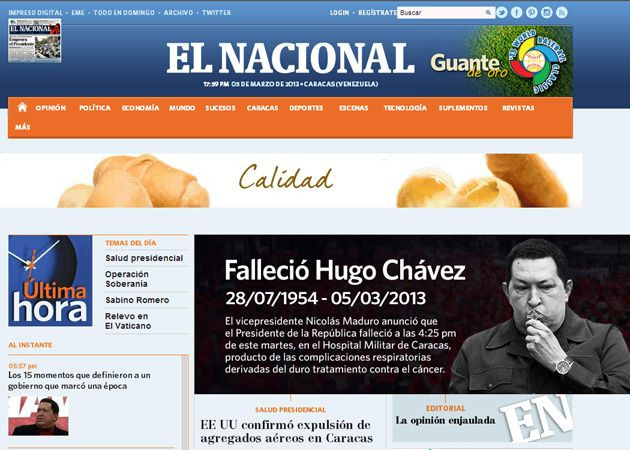
Argentina's Clarín, the largest newspaper in the country, said "Hugo Chavez died" and noted, in a headline just below the large picture, that he had "a tense relationship" with the United States.
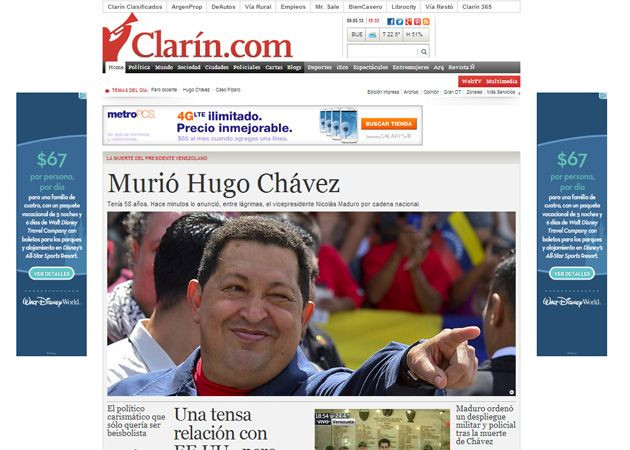
Next door in Portuguese-speaking Brazil, the Folha de Sao Paulo mentioned the cancer that killed Chavez at 58 and "put an end to the longest government in Latin America" -- the president of Venezuela had been in power since 1999. Other stories next to the large Chavez picture are dedicated to a profile of Vice President Nicolas Maduro, "the bus driver with the easy smile," now set to take over from Chavez -- who, reminds the story just below, "suffered a coup attempt in 2002."
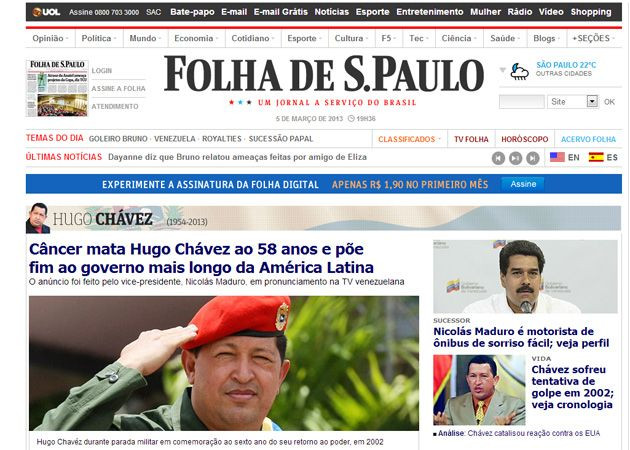
"Hugo Chavez dies," splashed Spain's El Pais, considered the leading newspaper in the Spanish-speaking world and one of the best worldwide for foreign news coverage.
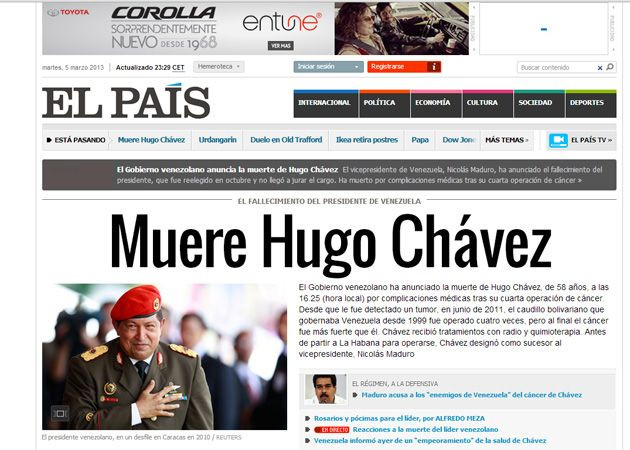
In Europe, the Italian liberal daily La Repubblica veered to the emotional, mentioning "the people crying in the streets," and quoted the Venezuelan government's unsubstantiated accusation that Chavez had been "infected by his enemies," while appearing to balance things with a reference to the late president as a caudillo, a Spanish word for "chieftain" that in Italian political discourse refers, disparagingly, to an authoritarian leader.
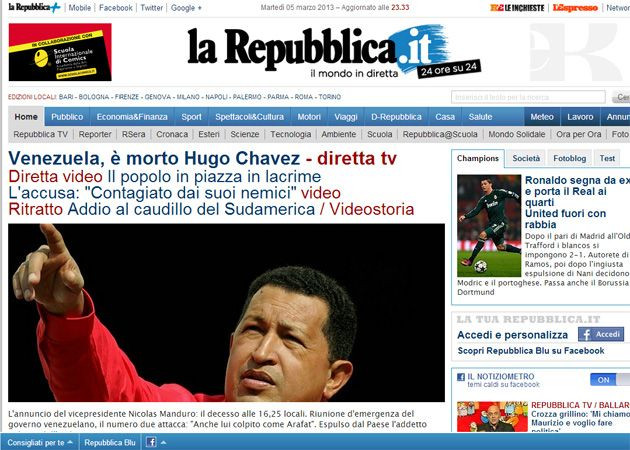
On the opposite end of the political spectrum, the Rupert Murdoch-owned Times, Britain's leading conservative voice, noted Chavez's status as a "hard-left icon" and described him as an "autocratic, virulently anti-American leader."
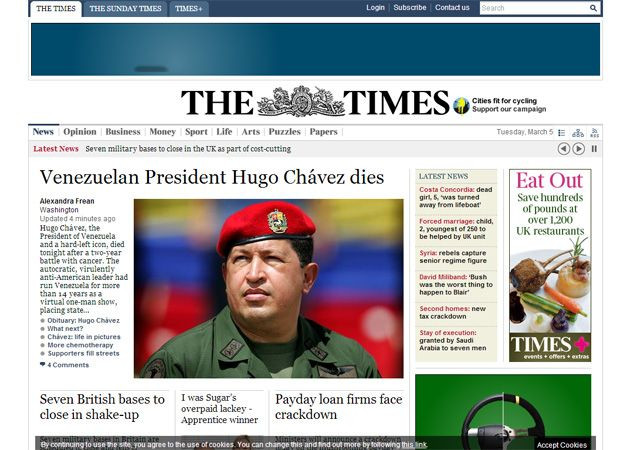
The state-controlled newspaper China Daily, despite Beijing's ties to Venezuela, was blithely ignoring the biggest international story of the day one hour after it had broken, both in its Mandarin- and English-language editions.
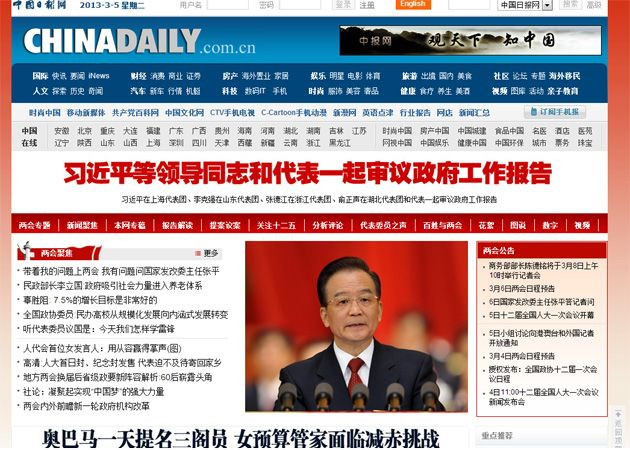
But any conspiracy theory based on the Chinese ignoring Chavez's death to serve some ulterior motive would have been quickly shut down by a visit to the home page of Xinhua, the state-owned Chinese news agency, where the Chavez story appeared prominently.
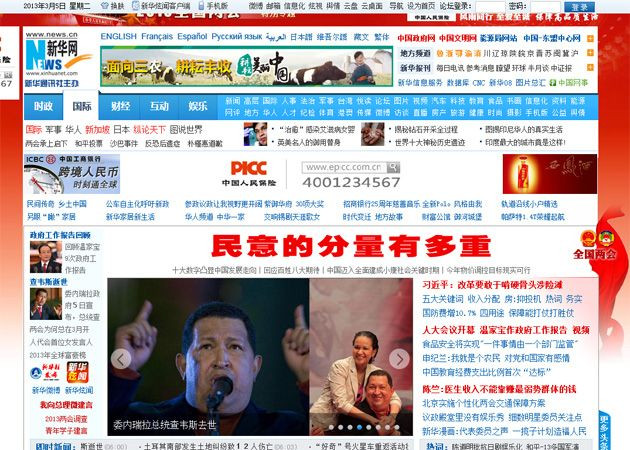
No roundup of the world press dealing with the death of Hugo Chavez would be complete without mentioning Granma, the official organ of the Communist Party of Cuba, the nation whose regime was the staunchest ally of Venezuela's ruler and where Chavez spent months for cancer therapy toward the end of his life. As befits the tone of the paper, even a story of this magnitude -- with potentially dire consequences for Cuba, which depends heavily on the oil and money that Chavez sent its way -- is treated soberly and with the exact same headline that appeared Tuesday across all of Latin America: "President Hugo Chavez is dead."
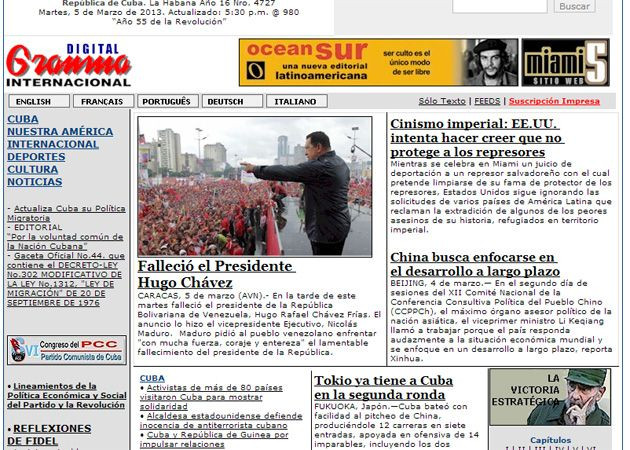
© Copyright IBTimes 2024. All rights reserved.






















